Building for the Future



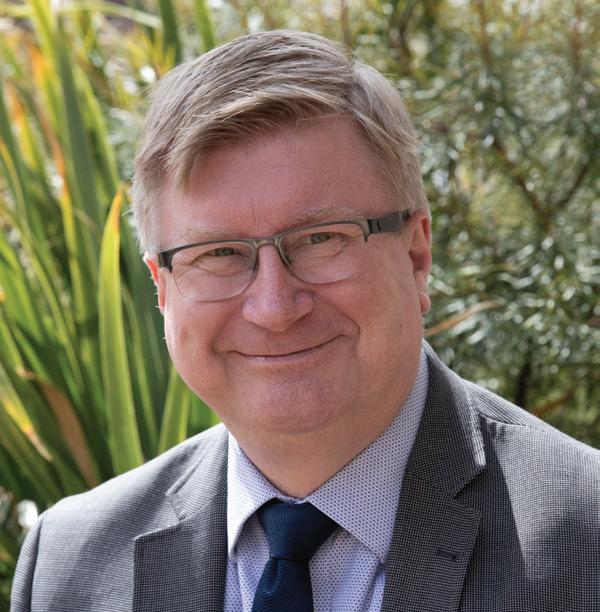
THEOLOGICAL EDUCATION IS NOT JUST ABOUT LEARNING MORE STUFF. IT IS NOT SIMPLY ABOUT THE HEAD. ANY THEOLOGICAL EDUCATION WORTH THE NAME IS CONCERNED WITH THE WHOLE PERSON— THE HEAD, THE HEART, THE HANDS.
We often speak about being soaked in God’s word so that we are shaped in character, deepened in convictions, and prepared to serve God’s people and those who are lost. At Moore College, the teaching provided by trusted elders contributes to that, and so do the many opportunities to ask questions, research answers, and reflect on processes. Yet just as critical is the community of faith and learning in which all of this is done.
Those who have been at College for some time still marvel at what happens here. The word of God changes people, and the community of God’s people both sharpens and deepens them. The little conversations no one else will ever know about which give such hope, open a door of understanding, or take an idea and make it live. The love and care for one another, rejoicing together in the good times and weeping together in the moments of tragedy or hardship, flesh out what is meant by grace, generosity, and love.
Living alongside each other as we learn together, wrestling with the same questions, and dreaming of ministry together, makes a world of difference. I’ve spoken with graduates who excitedly recount many memories of their life alongside fellow students and lecturers at Moore College. In unimagined ways, it prepared them for their future in full-time community life as a minister of the gospel. Others might not be able to identify anything specific but speak about the whole and how different they were at the end to who and how they were at the beginning.
At Moore College we place significant value not
just on learning in community but on learning in a special kind of community. The intensity of the College community is unusual. We sit alongside each other for extended periods each day. We eat meals together, play sport together, pray together, sing God’s praises together and sit under God’s word together. The common focus on a ministry of the word of God (despite its wonderful variety of contexts) binds us together in an extraordinary way. We are wrestling with the same questions at the same time and with the same goal. It is much more than an academic education, even if it is never less.
It’s not heaven. We who enjoy this privilege are still sinners, and repentance, forgiveness and forbearance are all part and parcel of the experience. We are not immune to the fragility of our fallen world. Sorrow, sickness and even death invade our lives just like everyone else. This is no ivory tower, protected from the harsh realities of ‘life in the real world’. It is, in some ways, a microcosm of the real world. We go to weddings, and we go to funerals too. We share wonderful ministry opportunities, and we also share lost or bungled ones. But we do this together, right up close.
Sometimes I hear the suggestion that full-time residential education is a relic of the past. Life today has a faster pace, and technology has opened up other possibilities. It is both costly and inconvenient to set aside one, three or four years to concentrate on study and prepare for a ministry that cries out to be done now where we already are. Yet it is even more costly and ultimately inconvenient not to do this. In a world of increasing complexity and challenge, we need not only to know the truth but to have been shaped by it. We need not only to know what we believe and why we believe but also the difference this makes to every aspect of life. We need the ‘iron sharpening iron’ dynamic of personal relationships (Proverbs 27:17). And that just can’t be done as well part-time or remotely.
My teachers at Moore College spoke of the rule of
thirds: a third of what you learn will be in the classroom, a third of what you learn will be in the library, and a third of what you learn will be from each other at the dinner table, under the grapevine, on the sporting field, in the prayer triplet. It is still true, and generation after generation of Moore College students can testify to that.
The generosity of God’s people over more than 150 years has made this work possible. Our residences in Newtown, Croydon Park, and, more latterly, North Parramatta are arenas for the shaping of future generations of gospel workers. Faculty and students living alongside each other create a remarkable and rare type of Christian learning community. I can walk along Campbell Street or up Little Queen Street and remember generations of students who have lived in each of those houses. I can stroll through the halls of John Chapman House and remember who occupied each room when I was a student and many who have occupied them since.
What we now call John Chapman House was known quite simply as ‘The Single Quarters’. It used to house just male students. Today men and women occupy parts of this building. The most recent wing was completed in the mid-1950s. The oldest parts date to the 1880s, when the College moved from Liverpool to Newtown. The rooms were quite suitable when they were built. No one expected anything more than the shared bathrooms at the end of each corridor. The main common room was originally part of the adjoining Broughton Chapel. We are so grateful for those who made these buildings possible and for how God has used them over the decades. They have enabled learning in community. However, it is now 2022, and times have changed. Many of these rooms are now inadequate, and the whole building needs reroofing, rewiring and new
plumbing. Given modern concerns, many of these rooms should have their own ensuite. It is quite a step down for our students who have experienced today’s university accommodation. If we want community life to thrive into the future, we need to do something now.


In this Moore Matters, you will hear again of our plans to redevelop John Chapman House to provide appropriate accommodation and community space that will serve us well into the future. They have been on hold during the pandemic while other needs were attended to, but we face the urgent need to enact them now. Will you pray with us that God might provide the seemingly impossible amount of money needed to do this redevelopment? Will you pray that many Christian people will catch the vision of what this unique experience of a community of faith and learning might contribute to the churches of the future?
In 2017 the Lord provided us with an extraordinary building for our library, learning and teaching, and administration. Now we turn our attention to this vital element in the College’s mission to provide excellent theological education. Without his help, this cannot be done, but our confidence is anchored in his grace and his gospel mission. What exciting days lie ahead!
Dr Mark D Thompson, Principal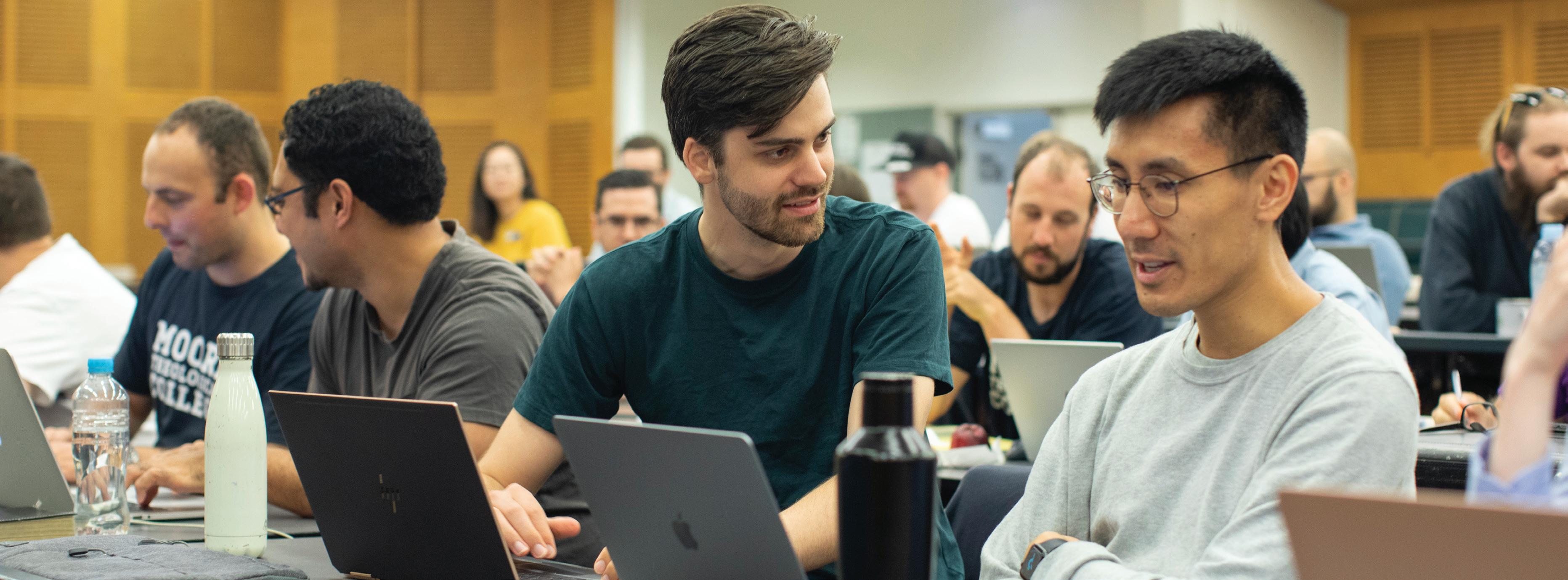 Paul Grimmond / Dean of Students
Paul Grimmond / Dean of Students
MOORE MATTERS SPOKE TO PAUL GRIMMOND, THE DEAN OF STUDENTS, ABOUT THE RELATIVELY NEW SUBJECT KNOWN AS ‘IMR’.
Moore Matters: Many students at Moore College are now doing a subject called ‘IMR’. What exactly is it?
Paul Grimmond: The letters IMR stand for Intentional Ministry Reflection.
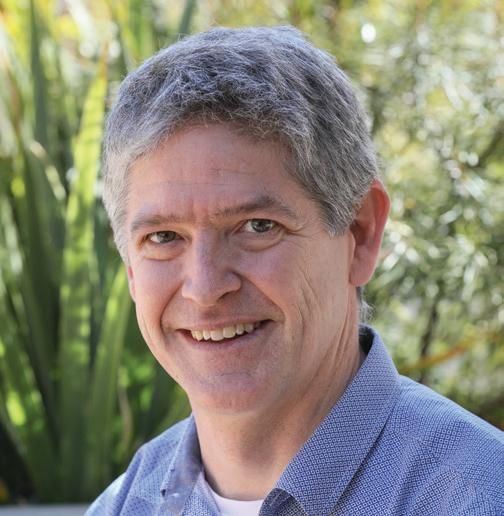
It involves a group of about five students who sit in a room week by week with two facilitators who are experienced ministry practitioners.
Each week, a student brings to the group a complex ministry situation they have been involved in. They fill out a template asking some questions about what happened, what they felt, and what sense they made of it beforehand. And then, they take part in a conversation in front of the group as they think about what happened, what they should learn about themselves and others, and what might be some helpful things for them to grow in or to develop as they move forward in ministry.
MM: What does it seek to achieve?
PG: The primary thing we’re trying to achieve is an awareness of complexity.
We want our students to have a sense of ‘being a self in a system’, which might sound technical. It means we want people to realize that they are one player in any
ministry situation, in a broader system of relationships, people, desires, hopes, fears, and a whole bunch of other things. So that when they come to interact in complex spaces in ministry, they realize that their perspective is one perspective, and there are other perspectives out there. If they can work out how to entertain other people’s views and perspectives with some thoughtfulness and empathy, they’re likely to ask better questions, listen better, and come to better solutions to ministry issues. So that’s one part of it.
The other part is research into resilience that suggests that things like emotional awareness, cultural intelligence, and self-awareness are significant for preventing burnout and other unhealthy behaviours in ministry.
MM: How does IMR intersect with the Bible?
PG: The reflection process steps students through four stages.
We ask them first to tell us what happened. Second, the student talks about what they felt and what sense they made of it. In the third section, they talk about their biblical values and what they thought was important for them Christianly. We explore gaps between what they said or did and what the Bible says would be a healthy or Jesushonouring way of acting or speaking in this situation.
So it’s not detached from a student’s awareness of biblical truth or the shape of Christian godliness.
But it’s designed to help them to interact with that in a way that gets a bit more real for themselves, and also stops that thing that’s very easy to do, which is to justify yourself, and always think that the other person has the problem.
The final part of the process involves them thinking through those gaps between belief and practice and what aspects of themselves they’d like to work on moving forwards.
MM: Why was IMR brought into the curriculum?
PG: There are a few reasons.
The research and work that Archie Poulos was doing in his PhD on ministry practice led him to ask some questions about what we did well at College and the gaps in the college space.
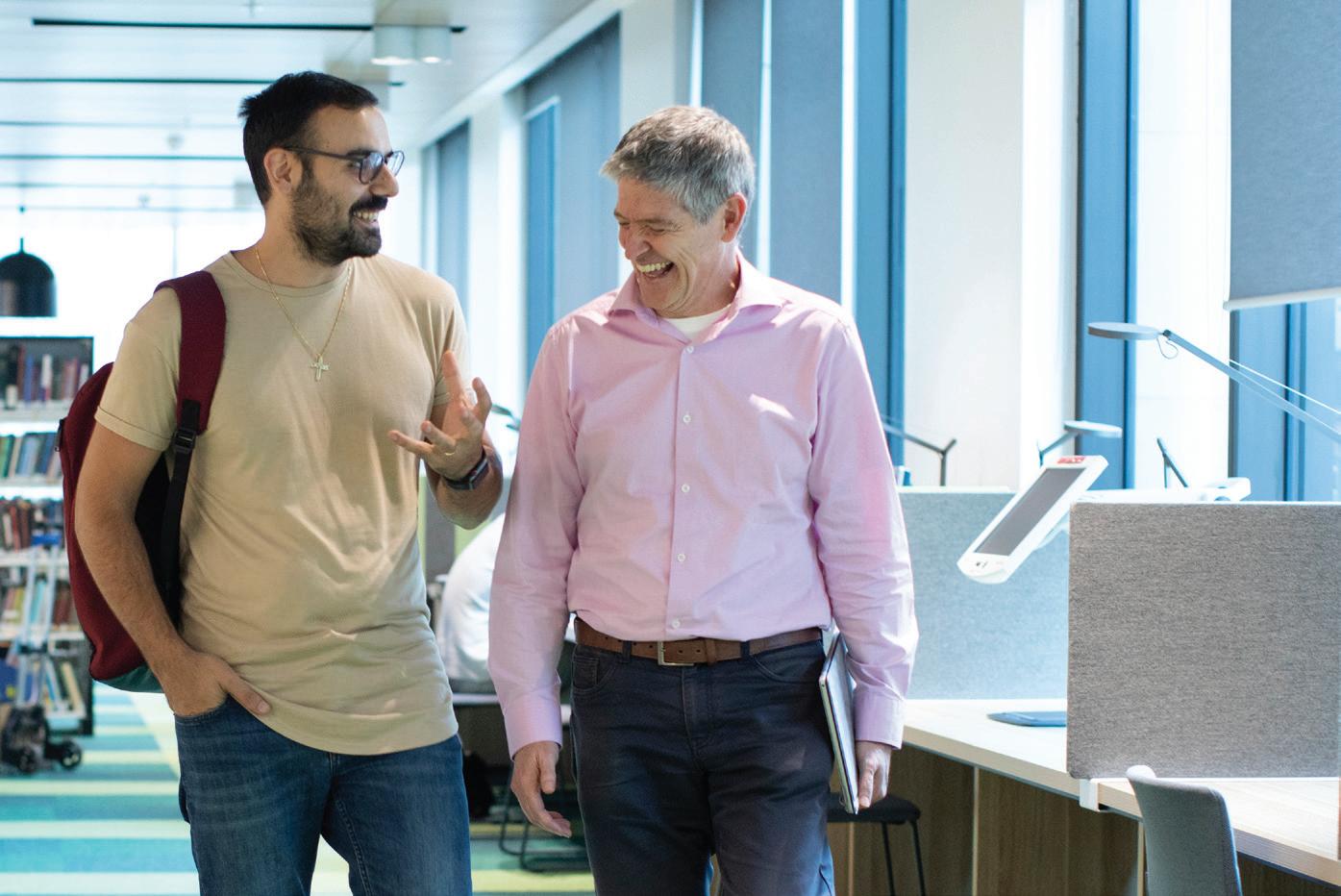

Around the same time, various other members of the ministry department came from different backgrounds and were thinking through related issues. All of those different pieces converged in this space where we felt it was important to help students not just gain exegetical skills or an understanding of theological truth but to think about how they and others engage in working those things out in relationship with each other.
This involves a different set of skills apart from just knowing the truth.
MM: Have you got any encouraging stories of growth that resulted from a student doing IMR?
PG: I’ve seen students tackle some complex things in their life and background and realize that some of the ways they behave in stressful situations have been programmed or governed by previous experiences.
And I’ve seen them become more aware of when they’re feeling anxious and stressed in ministry and then working hard at being more thoughtful and listening. So one student said at the end of their first semester of doing this, ‘Grimmo, I’ve tried some of these things that we’ve been learning in IMR with my wife, and it’s really helped. I’m learning skills here that affect all of my relationships. And I need to work out how to put them into practice, even in the relationships closest to me.’ What a blessing potentially for ministry marriages and the Kingdom!
And I’ve seen other students too, who’ve arrived at college, and by the end of college have been able to say things to me, like, Gee, “I’ve realized I’m really ideologically driven. And I’m quite a strong personality. And so I realized who I work for as a boss will be important. And I need to work out how to have a bit of that conversation with them as I start work to explain who I am and help them to know who I am ” There’s a growing level of awareness, and even a willingness to share that in relationships with significant people, that will hopefully help relationships in ministry.
To see the full IMR conversation with Paul Grimmond, scan here:
 Jane M Tooher / Director, Priscilla & Aquila Centre
Jane M Tooher / Director, Priscilla & Aquila Centre

ministry that really counts, then ministry done by women is already in second place.
Of course, your church might make something else the focus of ministry. It could be one-to-one discipleship, small groups, missional communities, or the experience of corporate worship. But whatever your focus is, it’s bound to have some effect on the role of men and women.
The following is an excerpt from Moore College Lecturer Jane Tooher’s latest book, Embracing Complementarianism, co-written with Graham Beynon.
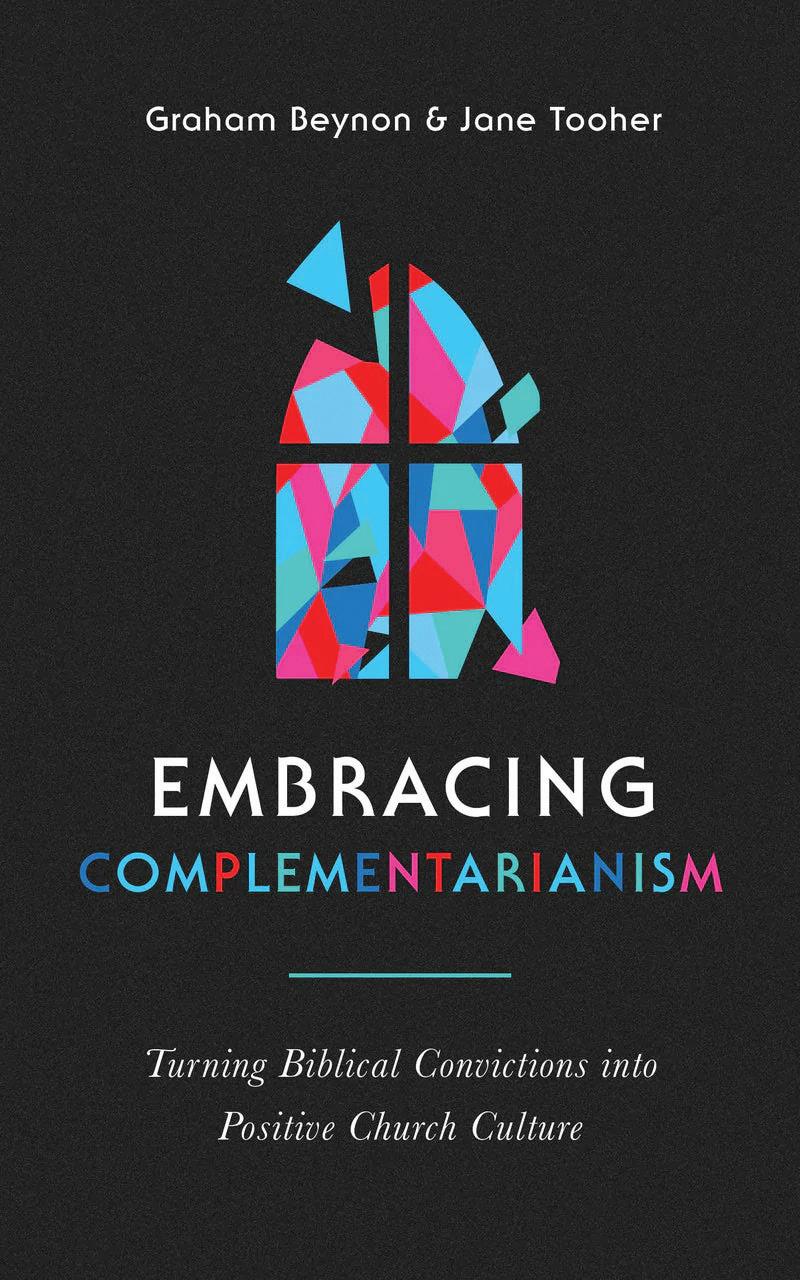
WHAT WOULD PEOPLE IN YOUR CHURCH THINK OF AS THE MINISTRY THAT REALLY COUNTS—THE MINISTRY THAT BRINGS REAL GROWTH?
Classically in conservative evangelical churches, the answer is preaching, usually as part of a Sunday service. It’s true that preaching is essential to the health of a church and has a prime function in facilitating its growth. But if preaching is the focus in a church—if that’s seen to be real ministry, either by design or by default—and if it’s something that only men can do, then we give the impression that ministry can only be done by men. If preaching is the
So is there a focus, an exclusiveness, to what really counts as ministry in your church, or is there a breadth? How do different ministries in the church relate to each other? And what is the knockon effect on men’s and women’s contributions in the life of the church and how those contributions are seen? As we’ll see, we should welcome, appreciate and nurture a wide range of ministry from everyone—including women— because that’s how churches grow: “From [Christ] the whole body, joined and held together by every supporting ligament, grows and builds itself up in love, as each part does its work” (Ephesians 4:16).
The elders of any congregation (whatever title they have in your church) have a particular role in teaching, in encouraging in sound doctrine and in refuting error (see 1 Timothy 5:17 and Titus 1:9). But it doesn’t stop there: the New Testament is full of what are often called the “one another” commands, which are about mutual ministry. We are to teach one another, instruct one another, encourage one another, correct each other and speak the truth in love to one another. There are both authoritative teaching roles and a one-another mutuality of teaching, in which everyone has a role. While these are distinguishable, there is great overlap—it’s not that when the elders are teaching, something completely different is happening from when two people study the Bible together. When people are studying the Bible together, they shouldn’t think that this ministry is “lesser” than “real” ministry, which happens elsewhere.
This mutual ministry isn’t just teaching either. That is the most common ministry described in the New Testament, but it’s not the only one. There’s also encouraging, exhorting, comforting, rebuking, training, correcting, spurring on, and more. Much of that happens alongside teaching; as you teach, you may rebuke or exhort someone. But much of it happens in spontaneous and organic interactions; someone shares how they are doing, and you respond, and what you say encourages them. You pray for someone in a smallgroup setting, and your prayer spurs someone on to live for Jesus. That variety of ministries is harder to spot because it doesn’t usually get put on a weekly schedule, where you could identify it; it just happens as a community interacts and its members live life together. And that is exactly the type of mutual interaction, with a variety of dynamics, that should make up ministry in churches shaped by the New Testament.

We need to embrace this multicoloured picture of ministry— both in who is involved and in what is happening—rather than being monochrome. That’s what we see in the image of the church as a body in 1 Corinthians 12 and Romans 12. The picture of the body represents both unity—since we are one body —and difference—since we are different parts. And each part of the body has a part to play in the building of the whole:
There are different kinds of gifts, but the same Spirit distributes them. There are different kinds of service, but the same Lord. There are different kinds of working, but in all of them and in everyone it is the same God at work. Now to each one the manifestation of the Spirit is given for the common good. (1 Corinthians 12:4-7)
Paul’s point here is that people make different contributions, but it is all the same God working or the same Spirit gifting, and it is all for the
good of the one body.
It’s important and significant to see that there is no gender differentiation in these passages. Rather, they portray mutual ministry within church life where everyone contributes and everyone receives. Taking these passages seriously means we must expect men to be ministered to by women, including through teaching, encouraging, correcting, and so on. I can testify to the helpful teaching and encouragement I’ve received from women in my small group, even as one of the elders.
At this point you might be asking, “But how does this fit with Paul’s prohibition in 1 Timothy 2:12 of women teaching or exercising authority over men?” This is where it is important to distinguish between the aspects of church life that count as “big-T Teaching” (the authoritative teaching of the male elders) and “small-t teaching” (the mutual “one another” teaching that everyone is to do in the church). For example, what about leading services? Leading singing/worship within services? Lead a mixed-sex Bible study or a mixed-sex youth group?
In answering the question “What type of teaching does this role entail?” it is key that we ask what is actually happening in each of the areas listed. We often know what we mean by a particular role in church life—we talk about someone “leading” a service, for example— but we’ve rarely examined it in any detail. And that means we’ve not asked whether the person is acting as an elder in what they are doing
or what sort of teaching/authority is being exercised in this role. It may be that you don’t think any of the examples above involve teaching with elder-type authority, and so you are happy for women to do all of them. For others, it might depend on exactly what is happening and how it is done, and this is where different people will probably have differing opinions.
For example, some Bible-study leading is very much about enabling others to see what it is in a passage and therefore be seen as “small-t teaching” and therefore ok for a woman to do, while other forms are much more directive and didactic and are therefore “big-T Teaching” which needs to be done by male elders. However, other relational dynamics are often in play as well: the nature of the group, its regularity, age differential, and so on. This is where we need to admit that some things are a judgement call and we will probably land in different positions. But in order for women never to teach men in any way, men and women would need to live on different planets! Women (small-t) teach men in a variety of ways every day, and this is good and right.
To order a copy of the book, scan here:
Note: This is an edited extract from a recent talk given by Kara Hartley and Phil Colgan for the Priscilla and Aquila Centre on ‘Men and Women and Church Discipline’.
NO ONE LIKES TO BE TOLD THEY ARE IN THE WRONG. AND MOST OF US FEAR BEING SEEN AS PHARISEES, JUDGING OTHERS FOR THEIR BEHAVIOUR WHEN WE HAVE SO MANY FAILINGS OURSELVES.
So it’s no wonder that we avoid thinking about and discussing church discipline. The idea of confronting someone about how they live, what they’re doing wrong, and sinful behaviour that needs to stop is, well, confronting.
The very idea of church discipline can sound unloving or ungracious. After all, who am I to call out the behaviour of a fellow sinner? Yet the Scriptures challenge us that sometimes we need to do this for the good of the person and for the good of the wider church. Needless to say, getting involved in church discipline is messy. For this reason, it’s important to be clear about what we’re doing when we exercise church discipline.
‘Big D’ discipline vs ‘little d’ discipline
Searching through the pages of the New Testament, it’s possible to categorise discipline into two different kinds: ‘Big D’ discipline and ‘little d’ discipline.
So what’s the difference between the two, and how do we do both well?
This is the kind of discipline Jesus speaks of in Matthew 18:15-20, and Paul talks about in 1 Corinthians 5:1-13. It’s the discipline required when there is continuous, unrepentant sin (Matt 18:16-18). It’s given only after much warning and counsel (Matt 18:17). It’s not for unbelievers (1 Cor 5:12-13) or even new Christians. (New Christians are only beginning to understand what it means to follow Jesus and the implications for their lives.)
It’s not just about sexual sin, but any sin that someone continues to indulge in without repentance (1 Cor 5:11). It entails a slow process, begins privately, seeking repentance and forgiveness, and as a last resort, may be public (Matt 18:16-18). If the person remains unrepentant, they will be excluded from the church fellowship (Matt 18:17, 1 Cor 5:2,5).
What does ‘Big D’ discipline achieve?
Big D discipline does two things.
First, it communicates to the person that they are outside the church and thus outside the Kingdom unless they repent. And second, it communicates to others that such sin is not to be tolerated in a Christian. Big D discipline is done for the good of the person and the good of the church.
But there are reasons why Big D discipline isn’t always straightforward. It’s never been easy; ask the Corinthians!
In our context, however, some things make it even harder. Here are three we might struggle with:
It’s so counter-cultural: does anyone have a right to call another person a sinner?
Issues of power imbalance: when leaders without accountability call out others’ behaviour and call people to repentance.
The nature of modern churches: what does it mean to belong to a church? When someone is excluded from one church, they can simply go to another up the road.
Yet despite these difficulties, the principles of Big D discipline help us to address sin within our fellowship and provide a guide, a process, for calling someone to repent of their sin.
But what about little d discipline?
One thing to remember when we consider church discipline is that the Bible’s teaching comes in the context of all the other teaching of what the church should be—a Christian community.
The dominant motifs of the New Testament for the church are
of a family and of a body—where Christians are defined not just as individuals but as part of the whole. To be a part of the church is to be a part of this body, where we share each other’s lives (e.g. Acts 4:2).
So as a family, we help one another live the godly life. The principles remain the same for little d discipline as for Big D discipline: little d discipline is a ministry of love of the other through correction and rebuke. Little d discipline says that to love people is to help them put off sin in their life so they might grow to be more like Jesus. Little d discipline tells us that sin matters.
This ministry of little d discipline helps us to avoid reaching a point where we need to do Big D discipline.
So how might we ensure we do little d discipline well and save ourselves from situations of Big D discipline?
Here are several things we can and should do:
» Cultivate a culture where confession of small sins and struggles is routine.
» Create an environment where people can confess sin to one another without fear of judgment, like in that 1 John 1 sense where we all agree that we are sinners.
» Create a Titus 2 church where older men encourage younger men, and older women encourage younger women.
» Create a 1 Timothy 5 church where men can exhort older men as fathers, younger men as brothers, older women as mothers, and younger women as sisters.
» Create a culture of genuine sharing of lives.
» Create a culture where it is normal
for people to encourage but also challenge one another gently.
» Create a culture where we are interested enough in one another and committed enough to one another to allow this kind of community to exist.
So, how can you be good at church discipline? Here are things to keep in mind:
Love people enough to call them back from sin. Love God’s church and be a good family member by caring about their discipleship and godliness. Recognise that discipline always aims to restore the person— that they love Jesus and follow him with their whole heart, soul and mind.
We’re to discipline, not to belittle, shame or crush another person, but to help them live the life Jesus calls them to: a life of holiness and godliness, bringing glory to him.
Yes, there will still be times when we might need to consider Big D discipline. But before we get there, it’s better to work together to create connected and loving churches, doing the little d discipline regularly and lovingly with one another so that Big D discipline remains our last resort.
Kara Hartley is the Archdeacon for Women’s Ministry in the Sydney Diocese. Phil Colgan is the Senior Minister at St George North Anglican Church. Both are graduates of Moore College.
To see the full talk, scan here:
MOORE MATTERS SPOKE TO MADDISON DONOHOO, WHO IS THE WIFE OF MOORE COLLEGE STUDENT JOSH, ABOUT HER EXPERIENCE LIVING IN A COLLEGE COMMUNITY.
Moore Matters: How long have you lived in College community? Which community do you belong to?
Maddison Donohoo: Josh and I live in MooreWest, the College community in Parramatta. We have lived here for three years this year.
MM: How has living in the College community encouraged your Christian faith?
MD: Living in College community has been such an encouragement for my Christian faith. It’s such a joy to be surrounded by like-minded people every day. Living in community means lots of little encouraging conversations, such as when you bump into people while bringing shopping in, hanging out the washing or coming back from a walk, and checking in with one another. Seeing the little things people do for each other around the place, such as showing love and kindness, is an encouragement—it shows Christ’s love for each other.
MM: How does it help you to encourage others? What are the opportunities you have living in community to encourage others?
MD: You often run into each other or see other people spending time together, prompting you to organise something yourself.
College community also provides opportunities such as encouraging and praying for each other as wives at Bible study. It’s a joy to share so much, especially in our women’s Bible study at MooreWest. We support one another through different seasons and pray for each other. This is such a blessing!
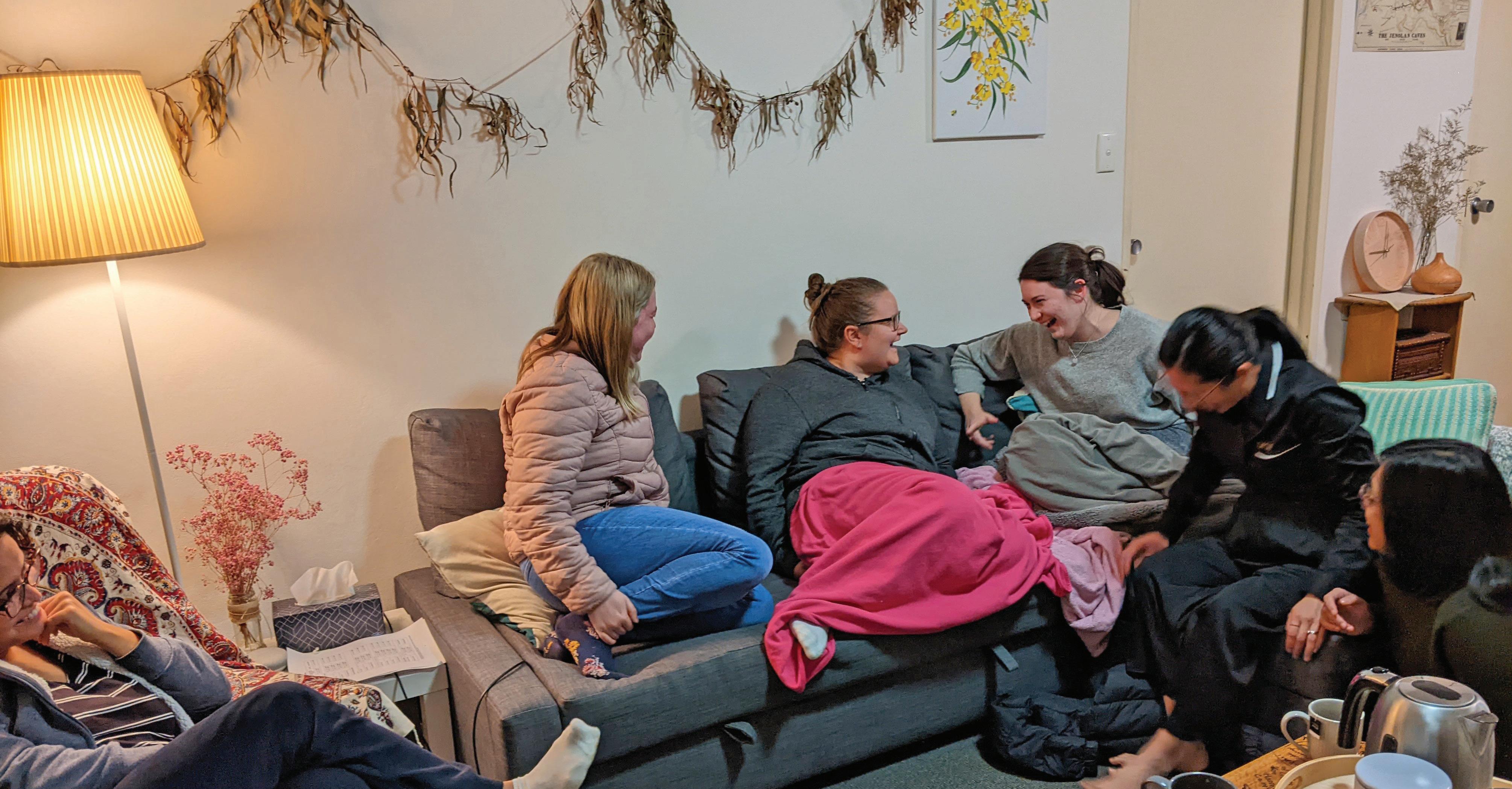
Another way to encourage one another is by sharing meals in community, whether at our Monday night community dinners or by having people over for meals. We also serve each other by providing meals when people are unwell, studying for exams or have had a new baby. Spreading love in this way encourages me (sharing food is my love language!) and encourages those who receive these meals.
MM: What are some of the unexpected blessings of community?
MD: There are so many blessings!
When we were first offered housing, I wanted to stay where we lived because I was comfortable. But I couldn’t be more glad we moved in, especially because so much of our first two years at college were COVID lockdowns. I cannot express the immense blessing of having a Christian community around in those times.
The little conversations or check-ins on doorsteps or corridors are such blessings, as is knowing you are surrounded by people who care and are ready to help. Everyone at MooreWest is willing to drop what they are doing to help one another. God made us relational just like him, and I think living in community highlights just how wonderful it is.
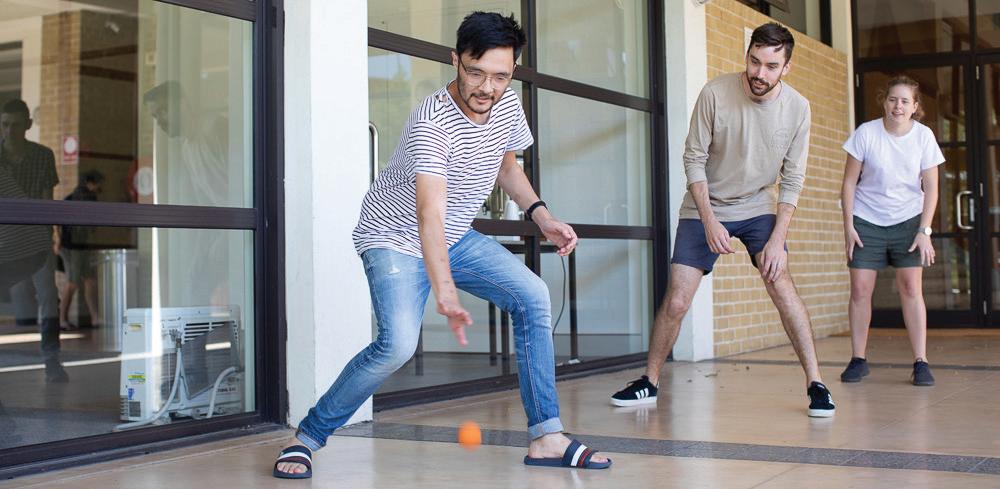
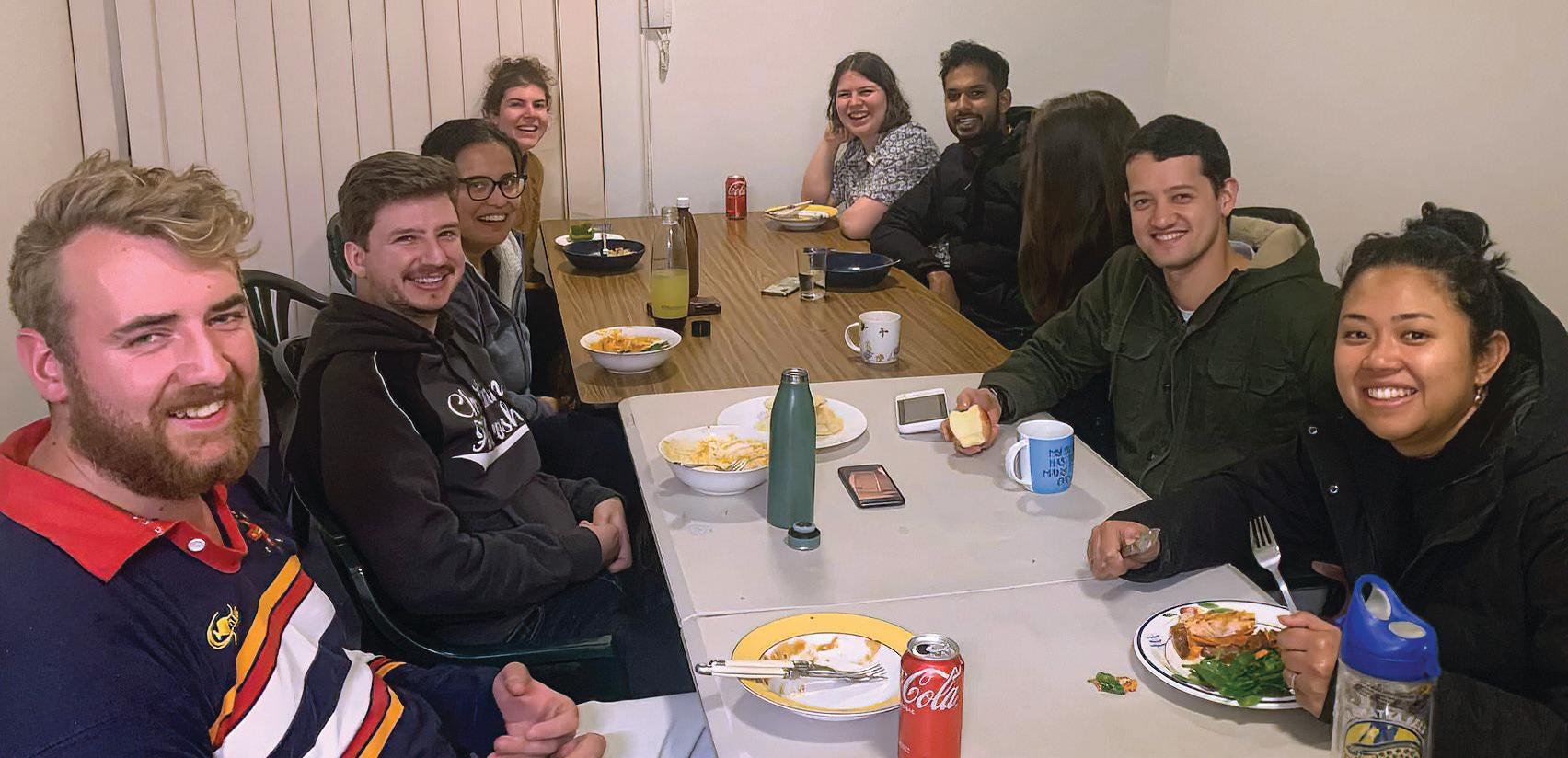
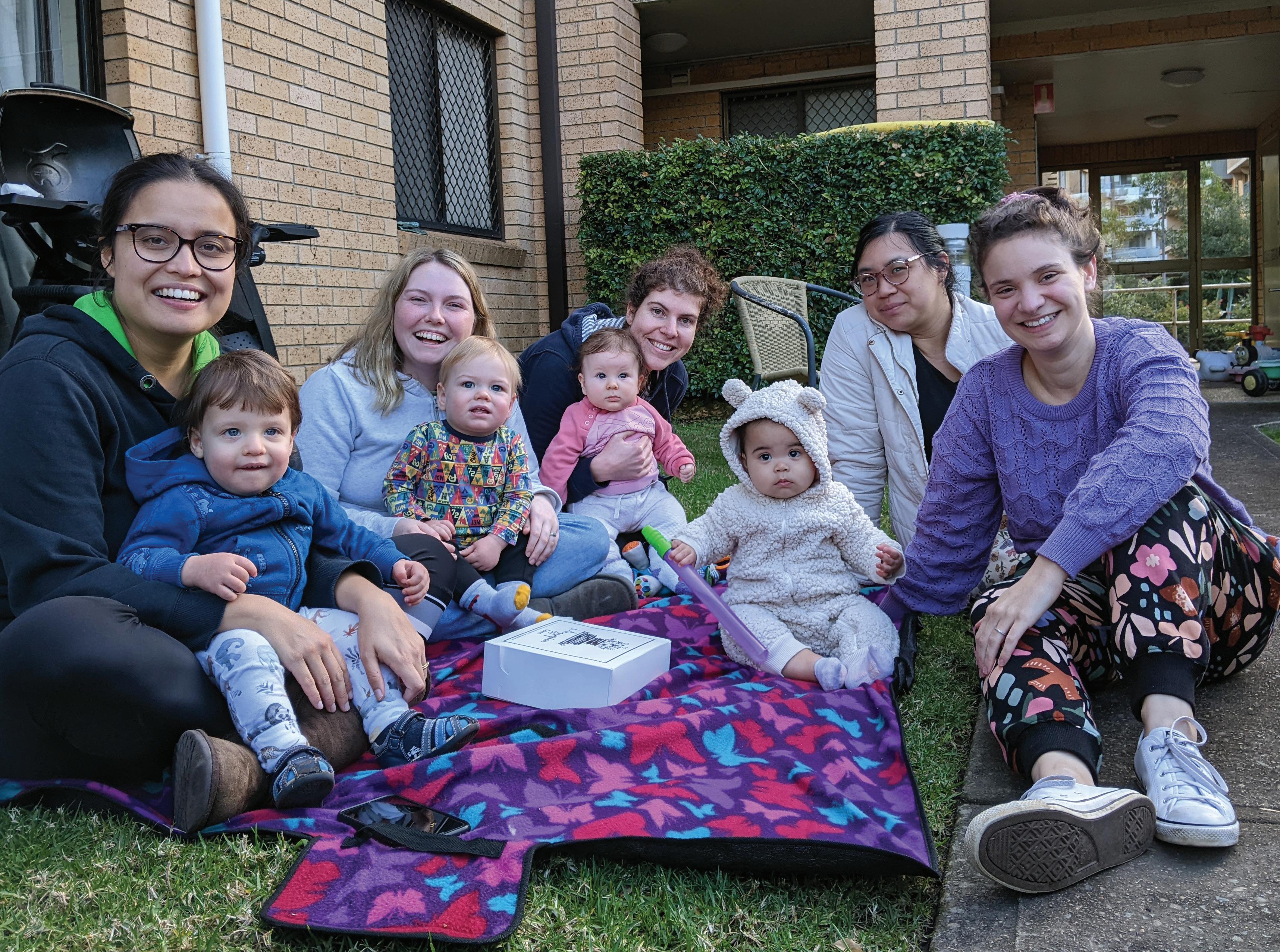
MM: What are some of the challenges of living in community?
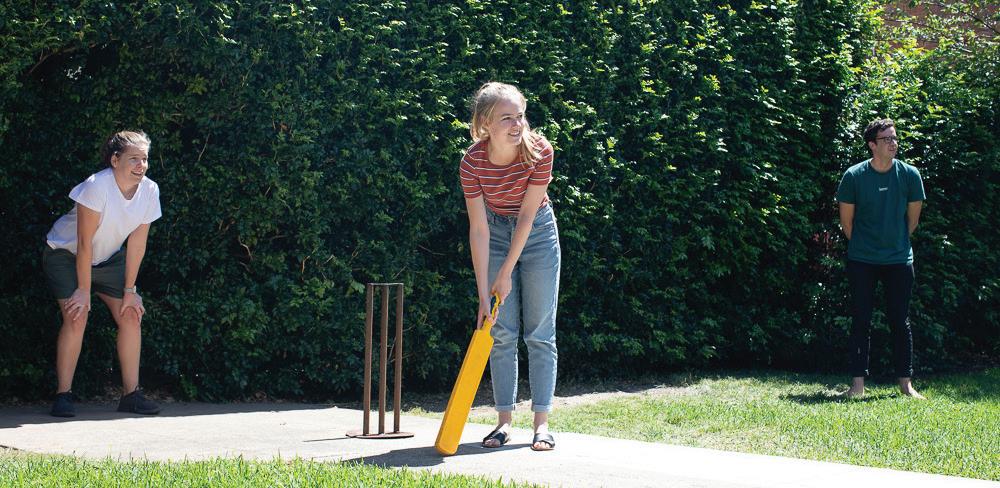
MD: I’m a real people person, so I find it tricky to pick out challenges. But living in a community often means people are around all the time, which can be exhausting for introverts. If you need to go outside and have some alone time, but people are nearby, you might feel obliged to talk even if you don’t really want to.
MM: How is this preparing you and your husband for a lifetime of ministry?
MD: Josh and I have found it helpful doing ministry together throughout our time at college. This year we have overseen MooreWest, which has been a great joy in caring for people in our community. Other ministries at church and college help to frame what ministry will look like for us in different contexts, what we might need to work on or strengthen, and how we work well together and complement one another.
MOORE MATTERS INTERVIEWED A MOTHER (MARY) AND HER DAUGHTER (JOY), WHO LIVE IN THE SAME RETIREMENT VILLAGE, ABOUT THEIR EXPERIENCE STUDYING THE MOORE PTC TOGETHER.
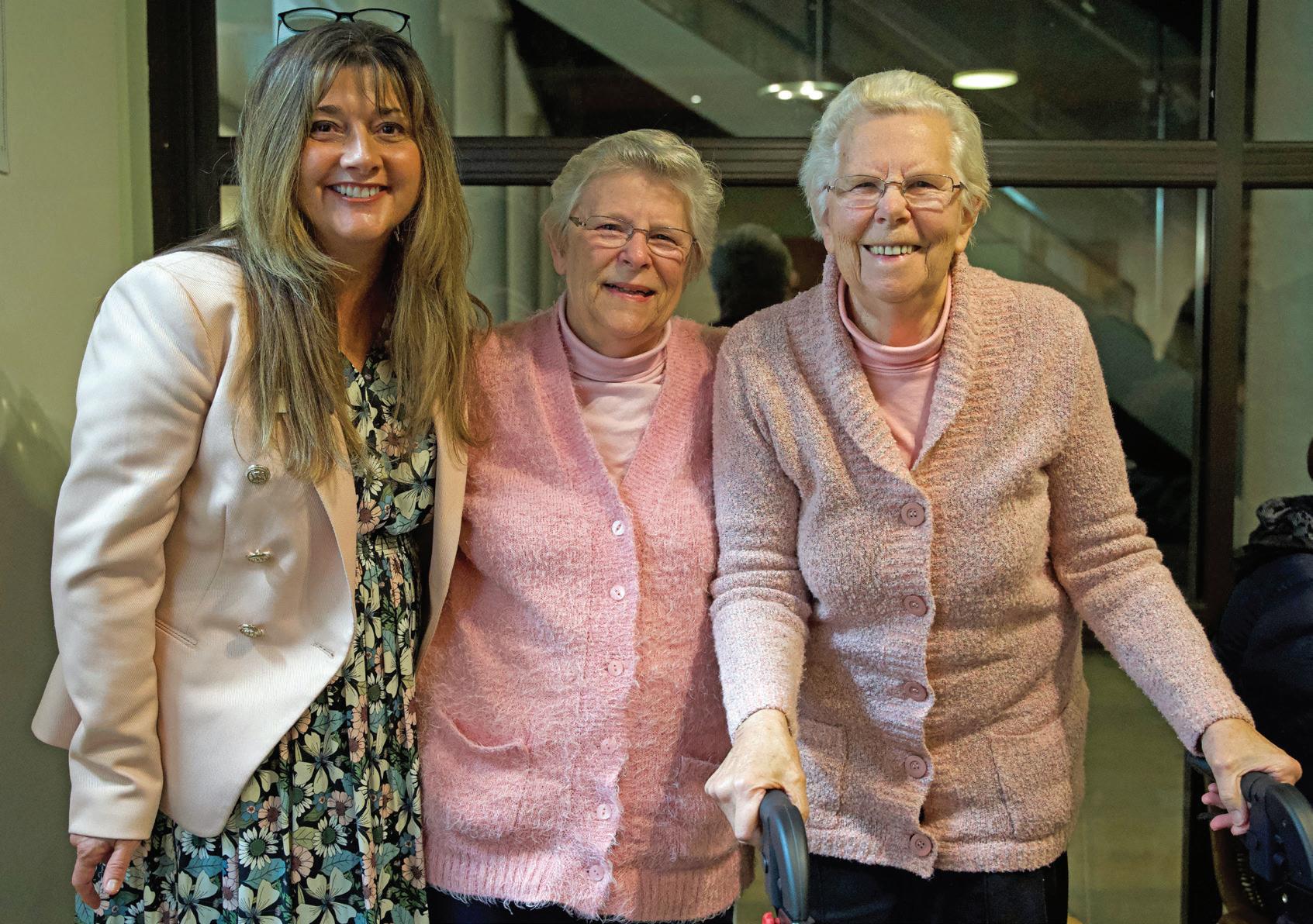
Moore Matters: How did you organise your study of the PTC?
Mary: We did our studies in the morning. We each had our laptops in different rooms, so we would go our separate ways, read the study on the topic we were doing, and then do the quizzes. We then would get together and go over what we had done, check how we had done in our quizzes, and talk about the ones we found difficult.
MM: What made you want to do the PTC together?
Mary: Originally I hadn’t thought of doing the PTC. After I quit trying to learn Spanish (to keep my brain active), our Christian doctor said, ‘why aren’t you doing a Bible course’? Good question! It was then I went online and signed up to do PTC. I enjoyed doing Introduction to the Bible, and got a good result in the exam. This encouraged me to continue, especially when Joy joined me in doing PTC.
Joy: I was doing an online course with U3A, and Mum and a friend were studying Spanish. After some weeks, Mum stopped doing Spanish and started doing PTC. Mum would share the things she was learning and was enjoying it so much that it challenged me to join
her, so I abandoned U3A to study PTC. Mum waited until I had completed my first subject so we could continue learning together.
MM: What were some of the joys of studying the PTC?
Mary: I was learning and digging deeper into God’s Word. I wasn’t merely gaining head knowledge, but it was also life-changing.
Joy: For me, it was learning the bigger picture of how the Bible fits together as a whole and not just a collection of individual books.
MM: What were some of the challenges?
Mary: I found some of the topics very challenging. I struggled with Early Church History. But studying with Joy kept me plugging away and persevering.
Joy: It was challenging to keep on going when a subject was more difficult to understand. A couple of the more challenging subjects were Early Church History and Prayer Book, but at the same time, I found them interesting. Studying together with Mum was an encouragement to keep going!
MM: Why would you recommend studying the PTC with someone?
Mary: Learning together can be fun! It keeps you on track and encourages you to persevere when the going gets tough. You can share what you are learning. You can rejoice together when you successfully pass your exams.
Joy: Learning together encourages and supports each other to keep learning and challenge each other to improve. Mum and I would become very excited when we passed our exams!
To find out more about the Moore PTC, scan here:
Moore College’s PTC course teaches theology to Christians worldwide.Ibecame a Christian when I was
18. I decided to do some theological study in my early 20s, while my husband was studying. In my first year I wrote an essay on the question: What is the Message of the Song of Songs?
While I was researching, I started to suspect that nobody really knew the answer! I couldn’t stop thinking about it, so I wrote a longer research piece about it in my final year of college. It became my thing.
After I graduated, life shifted and I thought I was done with theological study. I actually thought I was done with ministry; I was happily working as a freelance writer. But key people in my life kept saying, what about the Song of Songs thing? You should go and do that PhD. So, I started applying to colleges. I asked myself, if you could go to any college in Australia which one would you choose? The obvious answer was Moore. It’s got an excellent academic reputation and the best theological library in the country.
I’d been told that it was important to pick a PhD supervisor whose personality gelled with mine. When my potential supervisor (George Athas) called me to talk about my application, he was so enthusiastic and knowledgeable about my area of research. I immediately knew we could work together. It’s ultimately why I chose to come here.
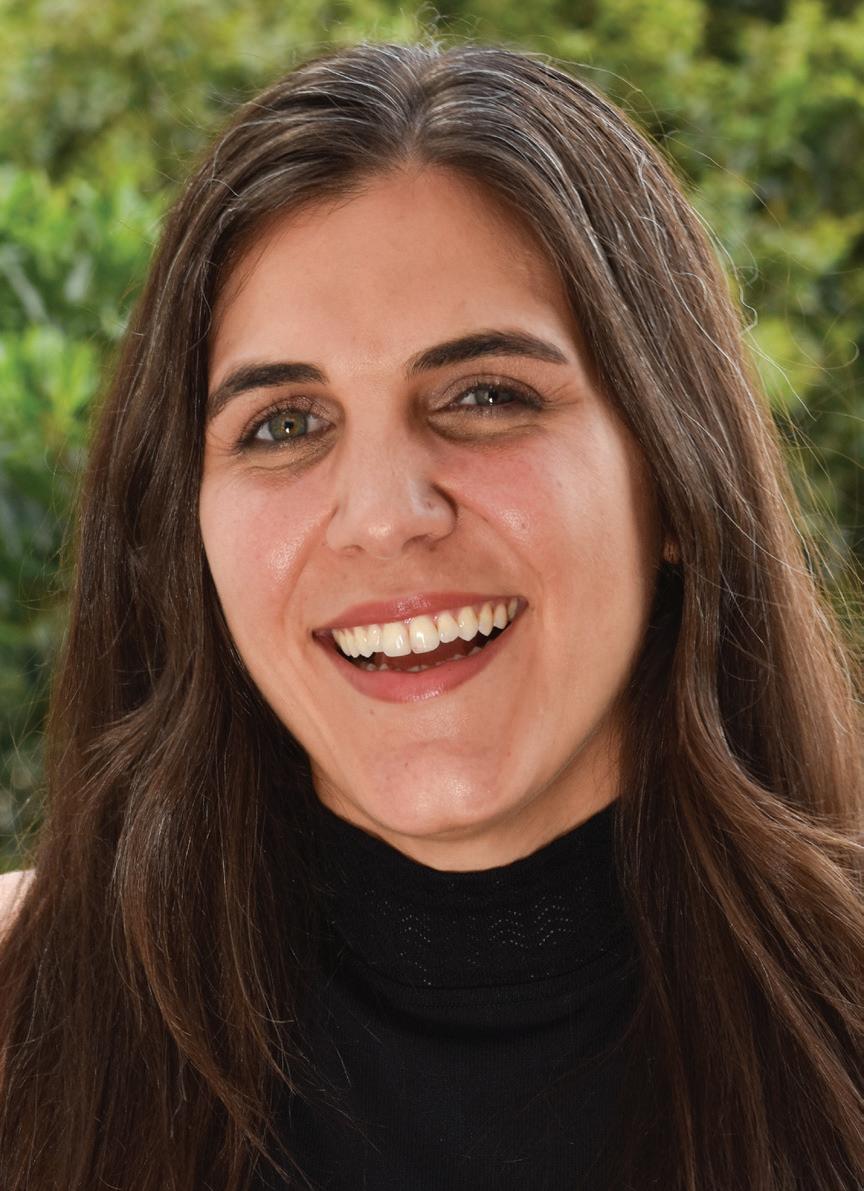
I had to relocate from Brisbane, but the college made that easy. I didn’t know a single person, but the college neighbourhood became my community. It also made Sydney feel like home to my husband, who moved with me and didn’t have his own connections to college.
Throughout the PhD process I was so well-supported here. Firstly, my relationship with George as my
supervisor was key. He met with me regularly, listened, stretched me, challenged me and helped me get my PhD to where it needed to be.
Secondly, the Moore postgrad community was a safe place. During my time here it was a small, tight-knit cohort. We shared the private postgrad study space, ate lunch together most days and tried to pray together regularly. It was a balm to have other people going through the same process and the same stresses.
I also got professional support from the Old Testament department, who looked for opportunities to give me experience teaching and marking, suggested conferences I could go to and jobs I could apply for. They always treated me like a colleague even though I was their junior.
Finally, the library is huge! The Song of Songs is an obscure book, but the Moore library contains almost anything in the world worth reading on it. Moore has a dedicated research support officer who helped me find publications that weren’t in the library, including things that were really obscure, outdated or not published in English. The PhD students are encouraged to request items to be added to the library collection so that it’s constantly growing through our research.
This experience definitely sharpened me as a scholar. I can see a marked difference in my thinking, writing and research skills after working with a supervisor for three years. It’s also changed me personally in unexpected ways. Moving to Sydney made me softer and more open to new friendships, the endurance test of doing a PhD made me more resilient and relying on my husband for more support brought us closer.
I’ve always been motivated by a desire to see the Song of Songs taught well in the local church. The ministry impact of academic research is a priority for Moore College. Since my topic is the Song of Songs, an obscure book with some confronting content, it’s been challenging for me to think about joining those dots.
Over the past few years I’ve worked with multiple pastors who contacted me for guidance as they wrote sermons or Bible studies on the Song of Songs. I’m always thinking about how to apply it to those in a congregation who don’t necessarily see themselves in the Song’s depiction of sexuality and love—whether they are single, unhappily married, feeling the impacts
of sexual sin or past trauma, or experiencing sexuality or gender issues that make them feel like outsiders to the type of relationship celebrated in the Song. I know God speaks to everybody in this book and invites them into the joy of reading it with others. It’s exciting for me to be able to confidently say something more than just ‘marital sex is a wonderful thing’ as we’ve so often heard taught from the Song. I can say, ‘even if you don’t see yourself in this picture, there’s more to discover. There’s a message for you in this book. And there’s an invitation for you to live with Jesus in his kingdom.’ That’s the reason I did a PhD.
If you’re wondering if you could do a PhD: yes, it’s hard, but Moore College is a great place to do it. You’ll be supported by the postgrad community, the faculty
and staff, and the fantastic library. If you’ve got an idea that you’re excited about, if you think somebody needs to research it and say something about it, then apply. Moore College might be the place for you!
For more information about doing a PhD, please visit moore.edu.au/apply, or scan the code below:
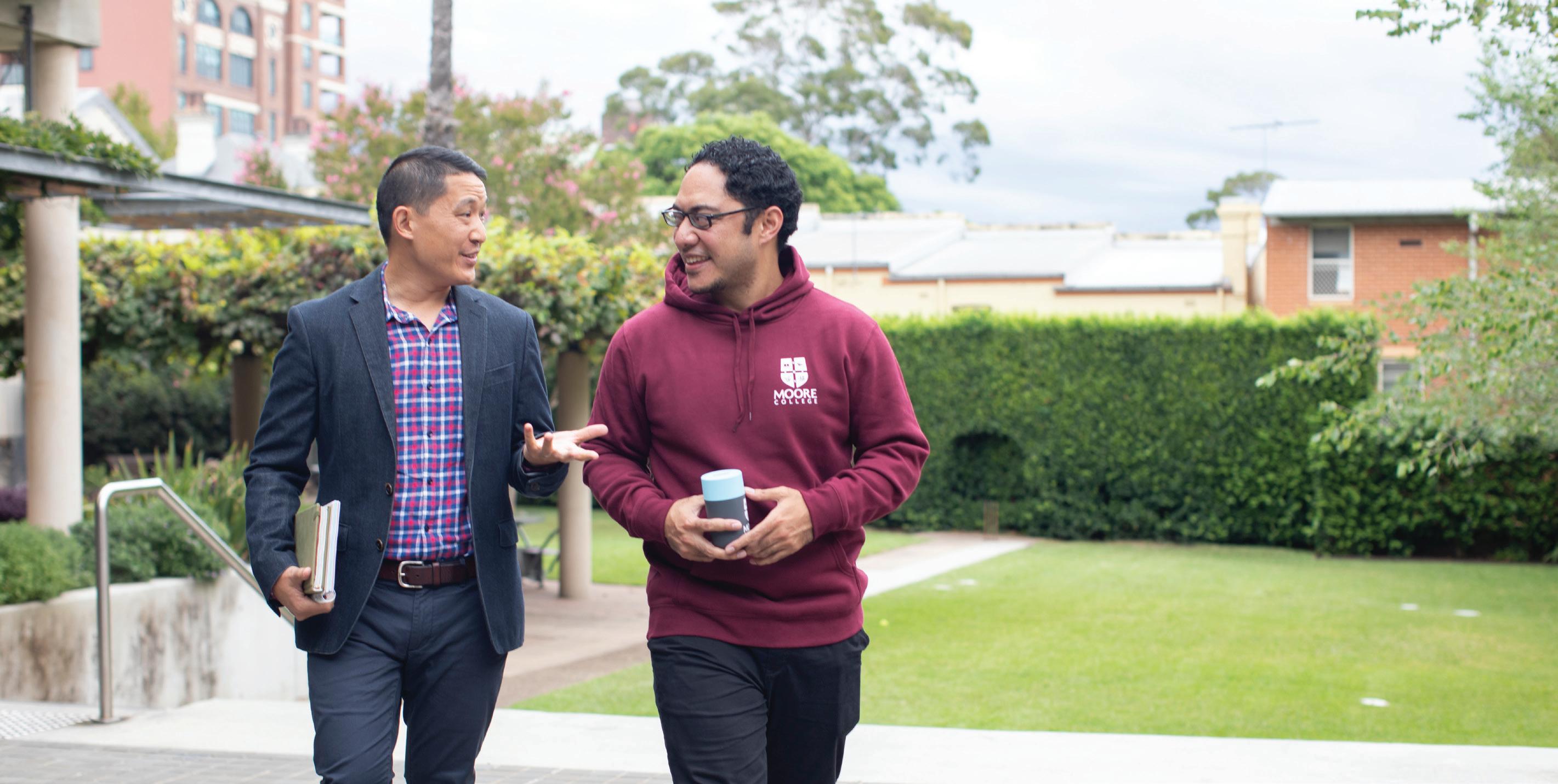
 Akos Balogh / External Engagement Manager
Akos Balogh / External Engagement Manager
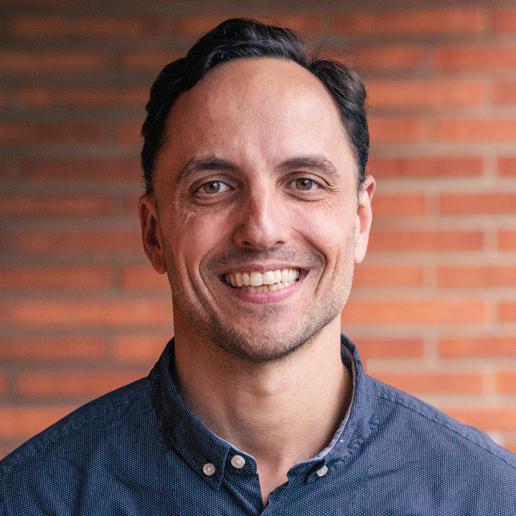
Our world desperately needs more gospel workers. Workers who can handle God’s word confidently and teach it to others. Workers ready to lead ministries and share the word of life with God’s people and with the lost.
But preparing for a lifetime of ministry is hard work. It can be a lonely and tiring experience. Those training for ministry need support. They need a community.
Moore College provides the training and community that prepare students for a lifetime of ministry. We prepare students face-to-face and fulltime for a ministry that is face-to-face and full-time.
As many of our graduates can attest, students are not isolated or alone when they come to College, but join a vibrant community of fellow students who learn the same material at the same pace. They share their lives and the Scriptures in a way that mirrors the apostle Paul’s example (1 Thess 2:8, Acts 20). As iron sharpens iron, these students sharpen each other inside and outside of class: whether it be over a meal, having morning tea between classes, or walking back to their accommodation. They’re formed by the
The design of the new John Chapman House.
College community for a lifetime of gospel work, with the desire and skills to minister with the word and their lives.
Such formation can’t happen when students learn by distance or live remotely.
This is backed up by secular research. As Associate Professor Andrew Wait reported earlier this year:
‘Face-to-face interaction helps students learn. A recent study I undertook with colleagues at Kyoto University and Monash University, published in the journal Games and Economic Behavior, analysed how people in teams work together. While it focused on employees, its insights could equally be applied to students, who often learn just as much from informal interactions with their peers as they do from their lecturers. These discussions and arguments help students explore ideas, be wrong, get informal feedback and change their minds. Notwithstanding the biological imperative to socialise, this is all part of the learning experience, and it is very difficult to imitate online, especially without the foundation of in-person contact.’1 (continued back cover…)
1
Andrew Wait, Face-to-face learning has many benefits which can’t be offered online, The Australian, May 4th, 2020. Accessed at Faceto-face learning has many benefits which can’t be offered online (theaustralian.com.au), on 23rd August 2020.
Matters
About Moore College
College exists to train men and women to take the good news of Jesus Christ to the world. Since 1856, more than 5,000 students have graduated from the College and have been sent out by God. Moore College has equipped men and women to serve in over 50 countries across the World. Today over 3,500 students are enrolled in our courses globally.
image:The design for the new John Chapman House.

Students need to be living in community if they’re to really benefit from communal face-to-face interaction. And for that community to happen, let alone flourish, there needs to be suitable accommodation. Thus, Moore College’s on-campus accommodation is critical to the future of well-trained gospel workers.
Since the 1950s, Moore College’s John Chapman House has provided accommodation that makes such community and formation possible.
But JCH is falling apart—quite literally. The facilities are no longer suitable for our students. They are currently quite a step down for our students who have experienced today’s university accommodation. Merely repairing it is not cost-effective or viable in the long term. Given modern concerns, many of these rooms should have their own ensuite. If we want community life to thrive into the future, we need to do something now.
The current two-storey JCH building from the 1950s will be demolished, making way for a six-storey building fit to house 91 students.

Open staircases connecting the community rooms will encourage people to walk between the various levels. There will also be a rooftop pavilion over the western building, which merges with the external outdoor decks, creating shared indoor and outdoor spaces.
As you can imagine, however, replacing a building is not cheap. We will need to raise $40 million to fill this need.
But a new JCH will allow us to accommodate future generations of Moore College students—both single and married. A new JCH will help the student community thrive, and shape future gospel workers. This will be an important investment in the future of gospel work across Sydney, Australia, and beyond, for generations to come.
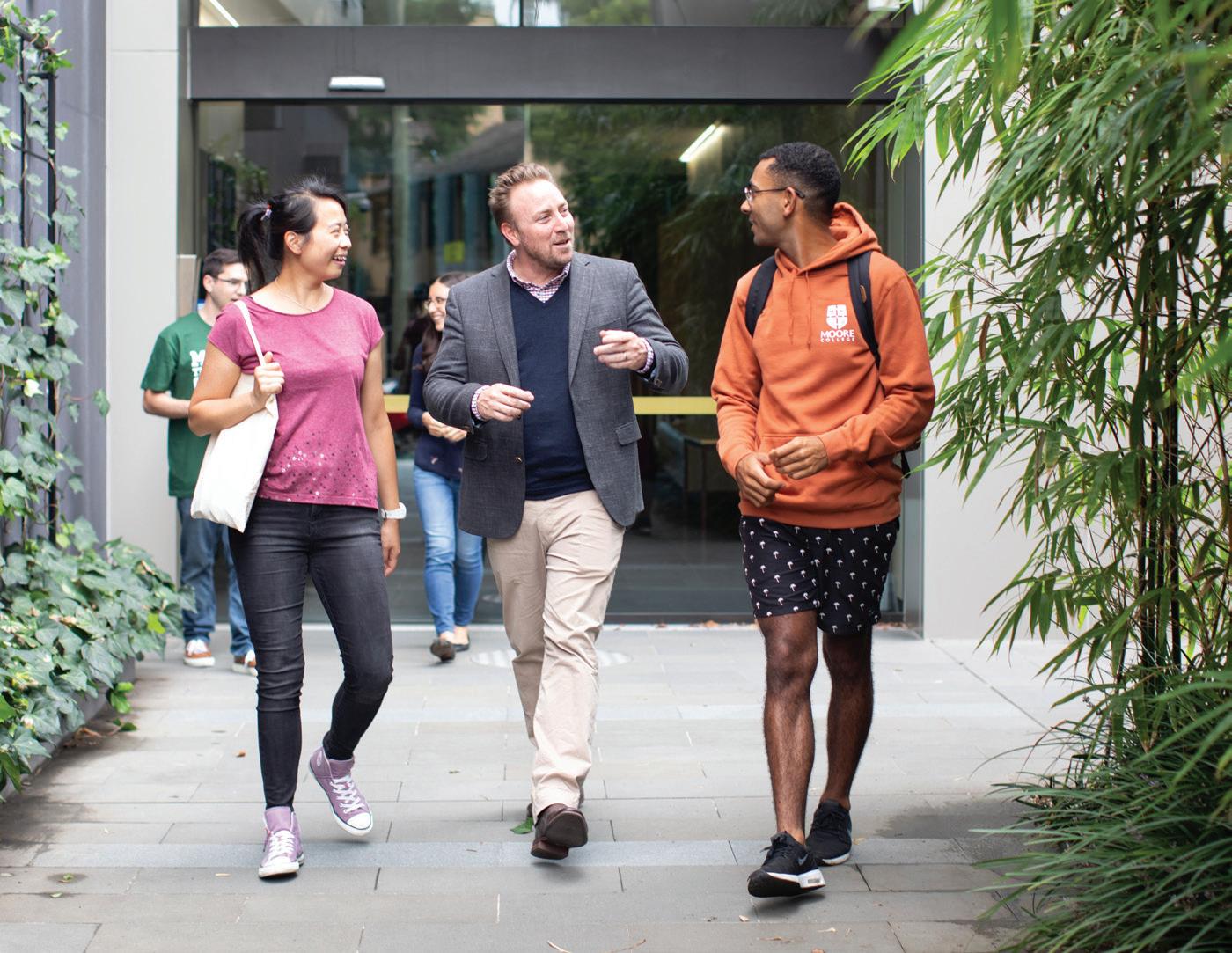
Will you partner with us in replacing JCH, to help Moore College train more gospel workers for the harvest?
Yours in Christ, Akos Balogh External Engagement Manager Moore CollegeTo find out more about the John Chapman House fund and to give, scan here: